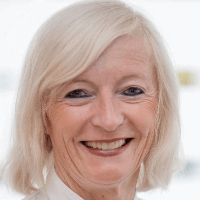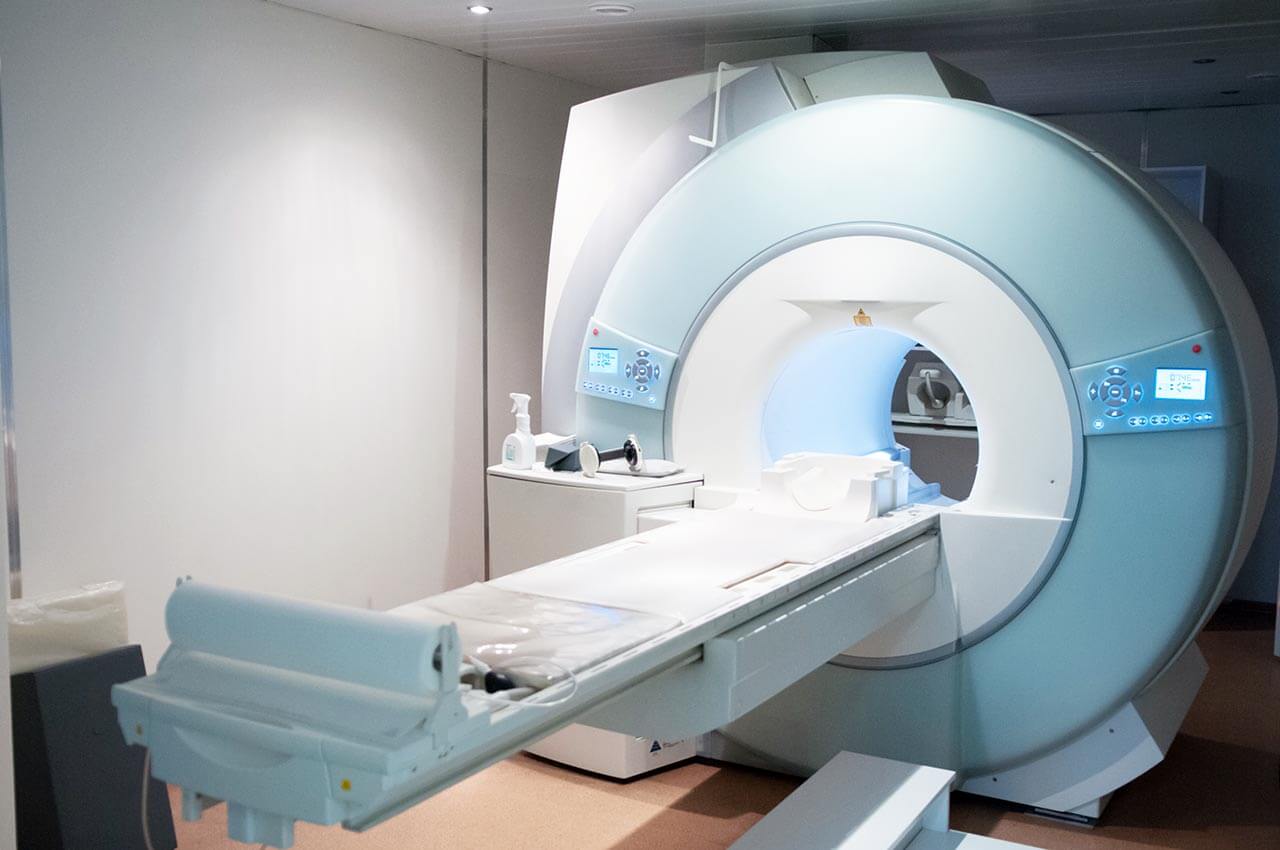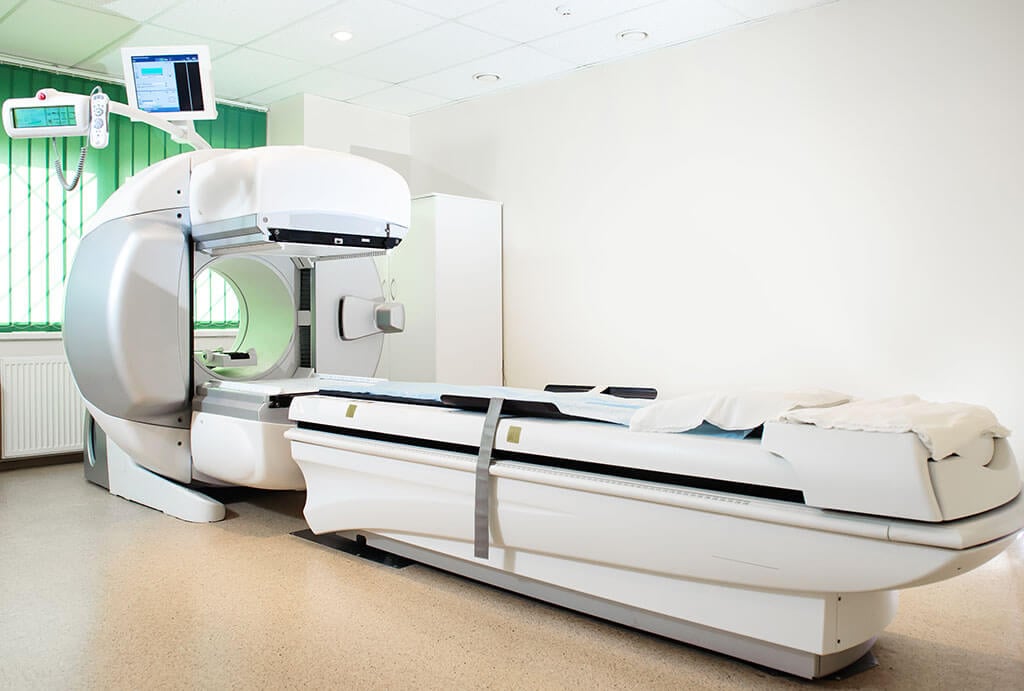
The program includes:
- Initial presentation in the clinic
- clinical history taking
- review of medical records
- physical examination
- ACTH stimulation test
- Insulin-induced hypoglycemia test
- laboratory tests:
- complete blood count
- general urine analysis
- biochemical analysis of blood
- TSH-basal, fT3, fT4
- cortisol and ACTH
- testosteron
- fkmljcnthjz
- inflammation indicators
- indicators blood coagulation
- ultrasound of the abdomen
- CT/MRI scan of the abdomen
- consultation of related specialists
- symptomatic specific treatment
- the cost of essential medicines and materials
- nursing services
- control examinations
- full hospital accommodation
- developing of further guidance
Required documents
- Medical records
- Results of hormone blood tests (if available)
Service
You may also book:
 BookingHealth Price from:
BookingHealth Price from:
About the department
The Department of Endocrinology and Diabetology at the DKD HELIOS Clinic Wiesbaden offers the full range of medical services in the fields of its competence. The doctors of the medical facility specialize in the treatment of hormonal imbalances, metabolic disorders, obesity and diabetes mellitus. An important clinical focus is on nutritional counseling and lifestyle recommendations for the patients with diabetes mellitus, hypertension and obesity. The department's medical team is proud of excellent results in the field of hormone replacement therapy in elderly patients, as well as in patients with adrenal diseases, osteoporosis and thyroid diseases. The doctors working in the department follow the current clinical protocols and apply modern treatment methods, which contributes to the achievement of the desired treatment results. The Chief Physician of the department is Dr. med. Cornelia Jaursch-Hancke.
The department's endocrinologists admit patients with all pathologies of the endocrine organs, including the thyroid gland, parathyroid glands, adrenal glands and pituitary gland. The specialists provide only conservative treatment. If the patient needs a surgical intervention, the surgeons from the Department of Endocrine Surgery will be involved in the therapeutic process. Endocrine cancers are treated in collaboration with oncologists, radiation therapists and chemotherapists. The department's medical team prefers an integrated approach to treatment that combines drug therapy, diet therapy, physiotherapy and hormone replacement therapy (if clinically indicated). The required complex of therapeutic measures is selected strictly individually. The doctors working in the department focus on the patients with impaired pituitary function, goiter, hyperthyroidism, hypothyroidism, thyroiditis, osteoporosis, osteopenia, arterial hypertension, lipid metabolism disorders, etc.
The department's team of diabetologists has been taking care of the health of patients with diabetes mellitus since 1994. During this time, the medical facility has treated more than 3,000 patients. Diabetes mellitus is an incurable disease, and therefore the main task of doctors is to control its course in order to prevent the progression and development of complications. The classic treatment regimen consists of insulin therapy or taking oral antidiabetic drugs, diet therapy and physical activities. Particular attention is paid to teaching patients to live with pathology, and therefore the department conducts 3 special training courses. The first focuses on diet therapy and oral antidiabetic drugs, while the second focuses on insulin therapy. The third one is devoted to intensive insulin therapy. The department holds many individual consultations, during which the attending physician personally communicates with the patient and tells him about further therapeutic measures.
The department's range of medical services includes:
- Endocrinology
- Diagnostics and treatment of pituitary diseases
- Hormonally active pituitary adenomas (Cushing's disease, prolactinoma, acromegaly)
- Hormonally inactive pituitary adenomas (craniopharyngioma)
- Pituitary insufficiency of various origins
- Central diabetes insipidus
- Growth hormone deficiency
- Diagnostics and treatment of thyroid diseases
- Autoimmune diseases
- Endocrine ophthalmopathy
- Goiter
- Thyroid cancer
- Hyperthyroidism
- Hypothyroidism
- Thyroiditis
- Diagnostics and treatment parathyroid diseases
- Hyperparathyroidism
- Hypoparathyroidism
- Diagnostics and treatment of disorders of of calcium and phosphorus metabolism
- Diagnostics and treatment of osteopenia and osteoporosis
- Diagnostics and treatment of vitamin D deficiency and its complications
- Diagnostics and treatment of Paget's disease
- Diagnostics and treatment of adrenal diseases
- Adrenal adenomas (hormonally active and inactive)
- Adrenal cancer
- Addison's disease
- Adrenogenital syndrome
- Pheochromocytoma
- Diagnostics and treatment of endocrine diseases of the pancreas
- Diagnostics and treatment of hormone-producing tumors (vipoma, insulinoma)
- Diagnostics and treatment of hypoglycemic conditions
- Diagnostics and treatment of multiple endocrine neoplasia types I and II
- Diagnostics and treatment of metabolic disorders
- Diagnostics and treatment of hirsutism
- Diagnostics and treatment of obesity due to endocrine disorders
- Diagnostics and treatment of lipid metabolism disorders
- Diagnostics and treatment of polycystic ovary syndrome
- Diagnostics and treatment of pituitary diseases
- Diabetology
- Diabetes mellitus type 1 and 2
- Gestational diabetes mellitus
- Pharmacotherapy with oral antidiabetic drugs
- Insulin therapy, including pump therapy
- Consultations on nutrition and lifestyle modification
- Diagnostics and treatment of other diseases
Curriculum vitae
Higher Education
- 1976 - 1983 Study of Human Medicine at the Universities of Duesseldorf and Bonn.
- 19.05.1983 Admission to medical practice.
- 21.09.1983 Doctoral thesis defense, University of Bonn.
Professional Career
- 1984 - 1986 Research Assistant, Institute of Clinical Biochemistry at the University of Bonn, focus on Neuroendocrinology.
- 1986 - 1992 Assistant Physician, Department of Internal Medicine II, Hospital Cologne-Merheim, and Department of Internal Medicine at the DKD HELIOS Clinic Wiesbaden.
- 09.11.1992 Board certification in Internal Medicine.
- 01.01.1993 Physician at the DKD HELIOS Clinic Wiesbaden.
- Since 01.01.1994 Head of the Department of Endocrinology and Diabetology at the DKD HELIOS Clinic Wiesbaden.
Research and Teaching Interests
- Pituitary and adrenal diseases.
- Osteoporosis.
- Reproductive disorders.
- Diabetes mellitus.
- Growth hormone therapy.
- Age-related androgenic deficiency.
Memberships in Professional Societies
- Professional Association of German Internists.
- German Society of Endocrinology.
- German Diabetes Society.
- German Society of Internal Medicine.
- American Association of Clinical Endocrinology.
Photo of the doctor: (c) DKD Helios Klinik Wiesbaden
About hospital
The DKD HELIOS Clinic Wiesbaden has long made a name for itself in the international medical arena by introducing an optimal model of medical care, combining the use of the most advanced medical technologies, the experience of highly qualified doctors and impeccable quality of patient care. The medical facility first opened its doors to patients in 1970. The world famous Mayo Clinic Rochester in America served as a model for the design of the medical complex. Since the foundation of the clinic, the main direction of its activities has been comprehensive diagnostics of complex diseases integrated into an interdisciplinary treatment concept. Today, an integral part of clinical practice is also preventive diagnostics aimed at the early detection of pathological changes in the human body. In recent years, the clinic has been actively developing the direction of surgery, in which it has significantly succeeded. The clinic enjoys a reputation as one of the best medical facilities in Europe in the field of endocrine and colorectal surgery, as well as in hernia repair surgery.
The clinic has 24 specialized departments. Each of them offers a team of experienced doctors, whose main value is the patient's health. The work of all doctors of the medical facility is based on a single credo – "Treat not a disease, but a patient". According to this belief, the course of treatment should be as individual as possible, taking into account the patient's physical characteristics, lifestyle, diet, emotional state, etc.
The clinic's bed capacity consists of 138 inpatient beds and 60 beds in a day hospital. Many diagnostic and therapeutic procedures are performed on an outpatient basis. The diagnostic and treatment rooms, like the operating rooms of the clinic, are equipped with state-of-the-art technology to ensure the observance of strict hygiene and safety standards. The advanced medical equipment allows detecting the slightest changes in the functioning of organs and their structure with impeccable accuracy, thanks to which doctors can diagnose complex pathologies at the very early stages. This greatly increases the chances of a successful cure.
The location of the clinic in Wiesbaden, known as one of the oldest thermal spas in Europe, is another pleasant advantage for the patients. Arriving at the clinic for a preventive diagnostic examination, one can improve his health in the healing thermal springs, as well as enjoy the sightseeing of historical monuments. The medical center is located in the immediate vicinity of the English style Spa Park founded in the distant 1852, so in the free time from medical procedures one can take a pleasant walk in the beautiful park.
Photo: (с) depositphotos
Accommodation in hospital
Patients rooms
The patients of the DKD HELIOS Clinic Wiesbaden live in comfortable single and double rooms. Each patient room has an ensuite bathroom with shower and toilet. The standard patient room furnishings include an automatically adjustable bed, a bedside table, a table and chairs, a TV and a telephone.
The clinic also offers enhanced comfort rooms with spacious bathrooms, which additionally include a large mirror, hairdryer, changeable towels and toiletries. These patient rooms also have a safe for storing valuables, a free minibar with soft drinks, a flat-screen TV with satellite channels and free Wi-Fi.
Meals and Menus
The patients of the clinic are offered tasty and balanced three meals a day: breakfast, lunch and dinner. If for some reason you do not eat all the foods, you will be offered an individual menu. Please inform the medical staff about your dietary preferences prior to treatment.
The clinic also has a cozy cafe where one can taste delicious snacks, salads, main courses and desserts. One can also enjoy aromatic coffee, delicious tea and soft drinks in the cafe.
Further details
Standard rooms include:
Religion
The religious services are available upon request.
Accompanying person
During the inpatient program, the accompanying person can live with the patient in a patient room or a hotel of his choice. Our managers will help you choose the most suitable option.
Hotel
During the outpatient program, the patient can stay at the hotel of his choice. Our managers will help you choose the most suitable option.





